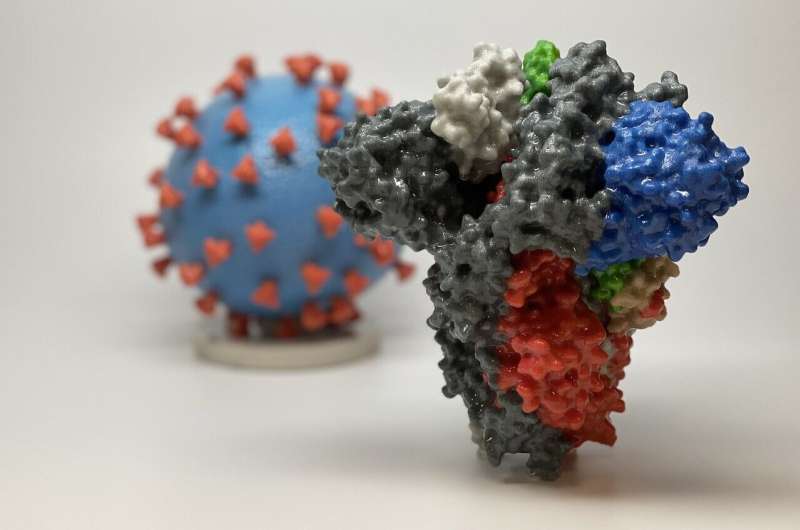Covid can infect brain cells: study

The coronavirus can infect brain cells, leading to a reaction that could possibly trigger neurological and psychological complaints, Dutch researchers said on Thursday.
Although the spread of coronavirus rapidly stops, leading to limited damage after entering the brain via the nose, it triggers cytokines, small proteins that act as messengers within the immune system, said the study published in the US-based mSphere microbiology journal.
"These can play a role in local infections... that possibly contribute to neurological and psychological complaints among many (ex) patients," said the study, done by the Erasmus University Medical Centre in Rotterdam.
"What we saw was similar to the fact that infection by SARS-CoV-2 seldom leads to serious encephalitis in which the virus spreads uncontrollably through the brain," said Debby van Riel, virologist at Erasmus University.
"But the fact that SARS-CoV-2 possibly can enter the brain via the olfactory nerve and locally infect cells, which leads to an inflammatory response, can certainly contribute to neurological disorders," she said in a statement.
Since the coronavirus pandemic started, patients around the world have reported neurological and psychiatric disorders such as memory problems, headaches, rare psychoses and in some cases encephalitis.
One in three people who contracted COVID were diagnosed with these disorders within six months of being infected, said a large study published in April in The Lancet Psychiatry specialist journal.
Growing data has indicated that the virus could enter the brain via the olfactory nerve, the Erasmus study added.
However, what happens when the virus entered the brain remained poorly understood, it said.
"Apart from our findings, the immune system probably also plays a role," said Femke de Vrij of Erasmus' psychiatry department.
"More research is needed," she added.
"We have now observed the virus in cells over a short period of time. We also just looked at a limited number of brain cells," said De Vrij, adding that further research "will tell us more about what the viral infection does with brain structures over the short and longer term."
© 2021 AFP
















